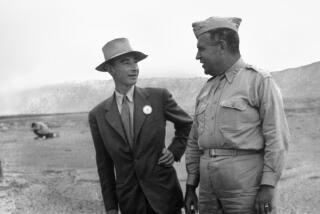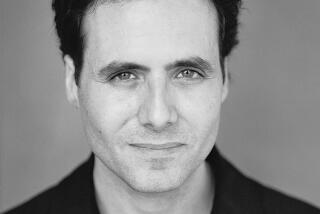A Gag on Science
Energy Secretary John S. Herrington doesn’t seem to understand that progress in science depends on the free and open flow of information and ideas. His effort to silence a dissident physicist at the Lawrence Livermore National Laboratory is not good science. Nor is it legal. Nor is it in the national interest.
The dissident physicist, Roy D. Woodruff, is no kook. Until 1985 he was the director of weapons development at Livermore and one of the staunchest supporters of the laboratory’s mission in designing nuclear weapons. But he resigned from that job after charging that two other Livermore scientists, Edward Teller and Lowell Wood, had made unduly optimistic assessments of X-ray lasers, a key component of the “Star Wars” project. Woodruff remains at the laboratory as the head of the program to verify Soviet compliance with arms-limitation treaties.
Now he finds himself under attack from Herrington, who went to the lab on Friday to say that Woodruff’s remarks were being used by anti-SDI forces, which was harmful to the program and to Lawrence Livermore. “I don’t favor having scientists going public on opposite sides of the issue if it’s going to be damaging to the laboratory,” Herrington said. “I think all this needs to be fought out in the lab.”
Woodruff’s professional conclusions about matters on which he obviously has competence are vital pieces of information in a political debate about scientific affairs. The energy secretary’s effort to silence him, and others of like views, is an effort to keep from the public important facts that undercut the Reagan Administration’s Star Wars plans.
Lawrence Livermore is run for the Energy Department by the University of California, where academic freedom is the rule. Surely Woodruff has a right to speak out on any matters he cares to.
In giving his honest assessment of an important piece of Star Wars technology, Woodruff is aiding both the scientific enterprise and the nation. “I have no desire to damage the lab,” he says. “But I do place my country and my principles above the lab.”
Herrington’s ill-considered remarks about Woodruff seek to substitute dogma for truth.






